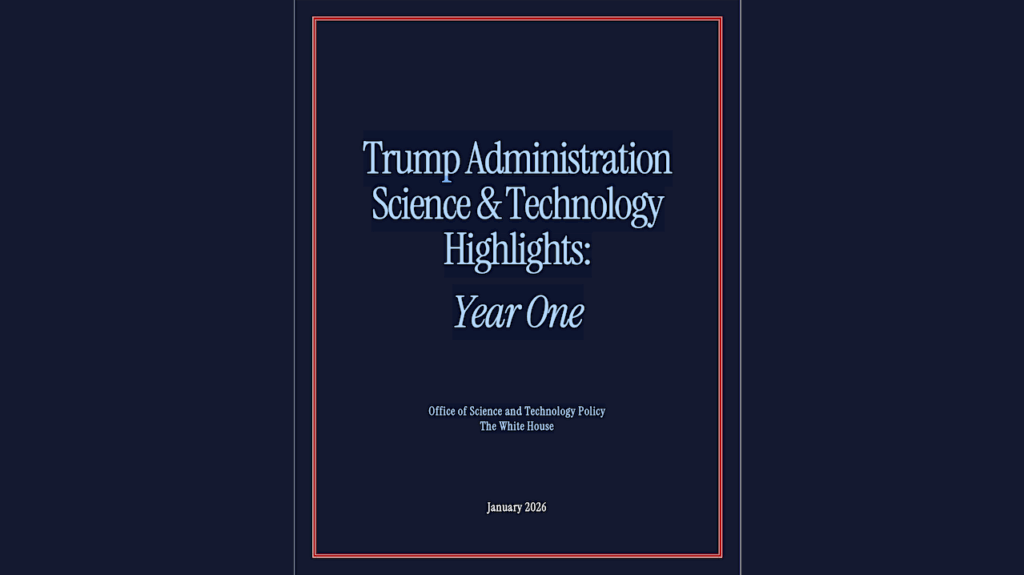Transcript of Remarks by House Speaker Newt Gingrich: Space Policy for the 21st Century
National Space Society seminar on “Space Policy for the 21 Century” 3 March 1995 Washington, D.C.
Thank you Charles (as in Charlie Walker, the NSS President who made the introductions). I’m delighted that we’re having this conference, and I appreciate very much the invitation to come over and share this few minutes, and I’m particularly delighted because I think it begins to re-establish the right direction and the right tone for wherever you’re going.
I have a very optimistic vision of the future. This space stuff is sort of gut American tradition, but that’s how it works out in the end. And that in fact, as Reagan said in his first inaugural: “We have every right to dream heroic dreams. After all, We are Americans.” And I think that the tradition of our society has been one of being very aggressive in trying to find frontiers. And interestingly, we are at the edge of a period, I think, where we can both have very bold frontiers here on the planet, at the beginning of what I think will be considered the age of molecular medicine. And at the same time, we can have very bold frontiers off the planet.
And so, I have a couple notes to say. By the way, I have very good credentials in this area, in that not only do I go back to the age of Missiles and Rockets Magazine which is probably beyond the-(unintelligible)-a lot of the younger folks have no clue. This was back when they were separate publications, and I got interested in space very early. But when I was, I think , a sophomore (2nd year member of the House of Representatives), I introduced a Northwest Ordinance for Space (see Title II of HR 4286 from the 97th Congress, 1981) which was looked at as a joke at the time. But it basically raised the question, when there are enough people off the planet, what are the organizing principles by which they apply for statehood?
Now, I cite that for this reason: you know, when Jefferson launched Lewis and Clark’s expedition and had bought half a continent, what is a comparable size gamble for the United States today? I mean, people say they are Jeffersonians, by which they mean limited government. Which Jefferson was for, he never did more than send the Marines to Tripoli, send a scientific expedition across the entire continent, or buy half the continent. And I think as long as you stay at that level of limitation–(audience laughter). Well, what is the comparable journey, what are the comparable things?
So, I want to talk at three or four levels just to sort of give you a sense of imagination. But then I want to, really, come back to something that I think Bob Walker feels very deeply about, and where we’ve been partners for years. We really hope that you all will come back and tell us what you think ought to be the right policies, not the politically correct policies, not the budgetarily correct policies. Let us worry about that. What we need to know from you is, if we want to maximize the human race’s opportunity to move out into space, and if we want to maximize that freedom is the primary characteristic of those elements of the human race that move out into space, then what should our policies be?
Now, this leads me to a couple of observations coming down to commercial space. First, we need a project, with our European and Japanese allies, big enough to genuinely draw together the system. We were driven together by the Soviet Empire. If we don’t find several very big projects, that tie us together, we are, in fact, gradually going to fall apart.
And they have to be real projects. They have to be everyday people working with each other. A minimal one would be to land on the Moon, and, I mean, to land on Mars rather. And to begin the permanent human habitation of the Moon.
But these are the sort of minimum size projects. You need to think about what is big enough, over the next twenty or thirty years, systems–. Because, if you take the total economic resources of the United States, Europe, and Japan. These are enormous systems. And for a relatively tiny percentage, the amount we spend, say, on dog and cat food, you can in fact achieve enormous breakthroughs if it is spent intelligently.
When we do that, however, let’s not replicate the last generation of government bureaucracy. Let’s try to find methods: whether we use prizes, which worked very well in aeronautics up through the thirties, or we use X-projects, or whatever we do; lets try to find entrepreneurial models of incentive to maximize the rate at which people move, so you have the cheapest possible, and fastest possible ways of getting there.
I’ve been asking defense contractors to find a way to lower the amount of time for fielding a new system by eighty percent, and the cost of production by forty percent, a sort of minimum goal. Now we want a similar–There’s no reason that technology only rises in cost if the government uses it. That in every other field technology has an inherent crash in cost.
So, we need an entrepreneurial– What’s the entrepreneurial model for the European, U.S., Japanese commitment to have– to reach Mars early in the next century, and to then– and again, I don’t want a design that comes back and says it costs an impossible amount of money so to prove we can’t do it, so we can avoid taking risks. You have to have Drake’s spirit of adventure. This is a country where the risk avoidance mentality of its government leads people to go out and hang glide, or they do cave diving. I mean– you know, so all that I want to say is, we want projects for volunteers, for people who understand they’re at the cutting edge of the human future, and that means that there are some risks involved. And if the Wright brothers had encountered OSHA, we would never would have had Kitty Hawk.
Second, we need to look at– a very boldly– to a next generation process of building the right kind of space shuttle. And my recommendation is that NASA adopt the role of Delta or United or American and become a customer. That we encourage all the large contractors to form a single– a joint project. That they build a vehicle that meets commercial and government needs and they themselves govern space on the vehicle. And the government provide initial funding, by contracting for a certain amount of guaranteed purchase, if they’ll in fact, meet the specs.
And just do it. No committee meetings. No government procurement models. No long planning sessions. No micro management. No budget reviews. Just, exactly what you would do if you were Boeing or McDonnell Douglas selling to an airliner. And my guess is– I’ve been told by some contractors that they think they could come in for as low as forty percent of the cost currently projected for the second-generation shuttle, and probably do it in about half the time.
Third, the current shuttle, frankly, should essentially be contracted out. Running the Shuttle is essentially a contract problem. I mean– you have to have reasons why you want to run it as efficiently as possible. It’s a direct management problem. It’s not something the government does particularly well. And it seems to me we ought to find a way to have a major contractor, or several contractors take it over on bid, run it on a commercial basis, have to meet the specs, and have big incentives for downsizing. Allow them to keep twenty percent of the savings. But give them real incentives to go out and find ways to do it cheaper, faster, better. Because, if you look at the private airline model of efficiency, and then you look at the way we currently design space products, it’s irrational. It makes no sense. And, it stops us from getting into space. It stops us from doing what we want to do.
Now let me talk about commercial space. There are several reasons for wanting to maximize the development of commercial space. One is it’s going to create a lot of jobs here in America. That, there’s going to be things that we can create in space that you can’t create in environments that aren’t weightless. There are going to be things that I think we’re going to learn, that we will look back fifty years later and say, “well those are all obvious.”
But I’m always fascinated by people who will invite you into their home, turn on their color television set, put on a VCR, start their microwave oven, and give you a pop-top beer, and tell you that they’re really tired of technological efforts. People always understand the present, and are confused about the future. The fact is, we are at the edge of a whole series of revolutions.In micro-miniaturization, I don’t know if you can see the little dark space there about one fourth the size of a postage stamp, there are seventy electric engines, seventy electric motors on the little space right down there, one fourth the size of a postage stamp. They did to prove that micro miniaturization is part of the wave of the future.
We can’t quite imagine, given this kind of technology, what we’re going to be able to do when we put our mind to it, in an environment that we’ve never worked in very much.
But the odds are pretty high we’ll find a lot of useful things to do. And that they’ll be productive, they’ll improve human health, they’ll improve incomes for America, and that for national security reasons, we want to be the leading country in space. And the best way to be the leading country in space, is to lead commercially, so you’ll have a lot of self-generating resources driving entrepreneurial spirits.
And this is the point I want to drive at. Entrepreneurs are different. I teach a course called Renewing American Civilization in which we spent two hours on entrepreneurial free enterprise, and two hours on the spirit of invention and discovery. And in a sense they are about the same thing. Because people who are creativing are different than people who are routine and rule-dominated. People who go out and force success, force achievement, get the job done, cut through the red tape, are different psychologically than people who dot the “i”s, cross the “t”s, and make sure they’ve met the requirements. We are, pre-eminently, the best country on the planet at being entrepreneurial.
A very simple test which I give a lot of audiences, and the thing which made me understand how cultural this was ,is if you’re in Germany, a great bureaucratic country, where there’s no speed limit on the autobahn, if you imposed a speed limit tomorrow morning virtually every German would obey it until it was repealed.limit party.” Most Americans have a different cultural response to the challenge of speed limits.
For most Americans, a speed limit is a benchmark of opportunity. Let me put it differently. How many of you find yourself automatically adding either five or ten miles per hour to the limit? Now, there’s a very profound message in all of this. You can get Americans to be excited by the opportunity to do neat things. You can’t regulate them worth a darn. This is why our public schools are collapsing in the inner cities. Because you try to regulate our way through a regulated approach to learning — which just means all the kids just quit trying. Whereas you can incentivize people to dramatic change.
What we want to do, and where we need your help; we want to cut through the regulatory baloney, we want to create clean, simple zones of risk taking. We want to establish a tax code which dramatically favors entrepreneurship. We want to create large tax incentives for getting into space. We want to explore the use of prizes, which have been used in the West since the late Seventeenth Century and have had a big impact on shipboard navigation. We want to explore the use of prizes where, if we have a goal we want to achieve, let’s set up a prize and whichever entrepreneur gets there first gets the money.
We want to look at a totally different style of operating our adventure in space than we’ve been– What we need, I know Bob Walker is talking right now about the idea of saying, let’s have a tax shelter on profits made in space. And by the way, these are not all going to be high tech profits. I will bet anybody, that if we’re daring enough, by the year 2015, a major profit center in space will be operating a hotel.
The people who currently will go around the world– there’s no reason in terms of weight that you can’t get into space for about the first class cost of going to Sydney, Australia from Los Angeles. That’s the fuel expenditure to get into space. We just make it artificially more expensive. Now, if that’s your goal, and you figure out how many people last year flew first class to Sydney, and then you say, imagine yourself on your honeymoon in weightlessness, and I’m not for the purposes of this story going to step beyond that.
But it’s a very real point. Tourism– and I just spoke two nights ago to the Tourism and Travel Club, and so I’m going to carry it around full speed. This again, people say “Let’s be bold.”, and then you’re bold and they say “That’s weird.” “Why was he so boldly bold, he should have been timidly bold.” So I talked to the Tourism and Travel Club. Tourism and travel is the second largest industry on the planet. So when you talk about space, why shouldn’t tourism and travel be the second largest industry in space? Or the largest? So, if you say, all right, let’s design– let’s try to get *this* generation into space. Now, yes, it’s a risk. So is going on safari in Africa. So is going down the Amazon. The number of people who do various National Geographic and American Museum and Smithsonian trips and risk diseases and risk all sorts of things. In a free society, you’re allowed to take some risks, as long as you’re informed. And so one of our goals ought to be, to say, “You tell us how bold we have to be.”
But I want to close this example, because there’s something, actually, Walker and I were too timid about. When I look back on our careers, it just frustrates me unendingly. We’ve been talking for a decade about the idea– we ought to set up the right length of time, ten years, fifteen years, you tell me the length of time for a tax free earning of profits in space. I’ll be fascinated to see how Joint Tax scores us. Because since there are currently no taxes coming from space, it’ll be hard to see how they score this as a loss. And, in fact, you could make a pretty good argument that the number of jobs that would be created on Earth that would be paying taxes to sustain the profits from taxes in space, or rather, the profits in space will clearly mean that you’ll have a large tax increase for the government, or revenue increase for the government by creating the incentive in space.
But I will tell you, my hope is that Bill Archer (Rep. Bill Archer, Chairman of the House Ways & Means Committee), I understand that Bob Walker (and he) both agree now, to have joint hearings on this. My hope would be that, this year, we would pass a tax holiday on profits made in space, to begin to establish the right incentives. That’s how we crossed–that’s how we built the trans-continental railroad. The use of incentives is a long Anglo-Saxon tradition. It’s why Drake’s tiny ships were often better than Spanish Galleons, which were much bigger. They had a different incentive plan. They got to keep the gold. That’s at the bottom of what drove the founding of the American Colonies. Incentives have a long tradition in our civilization.
And what we need from you is, you tell us the incentives, you tell us the deregulation, you tell us how to set it up so that it will work. And then we’ll work with you so that we create the government framework within which you bring the entrepreneurial spirit and the entrepreneurial creativity. And I look forward very much to seeing a report from you all, and hearing back from everybody whose participated.
Thank you, very much.








